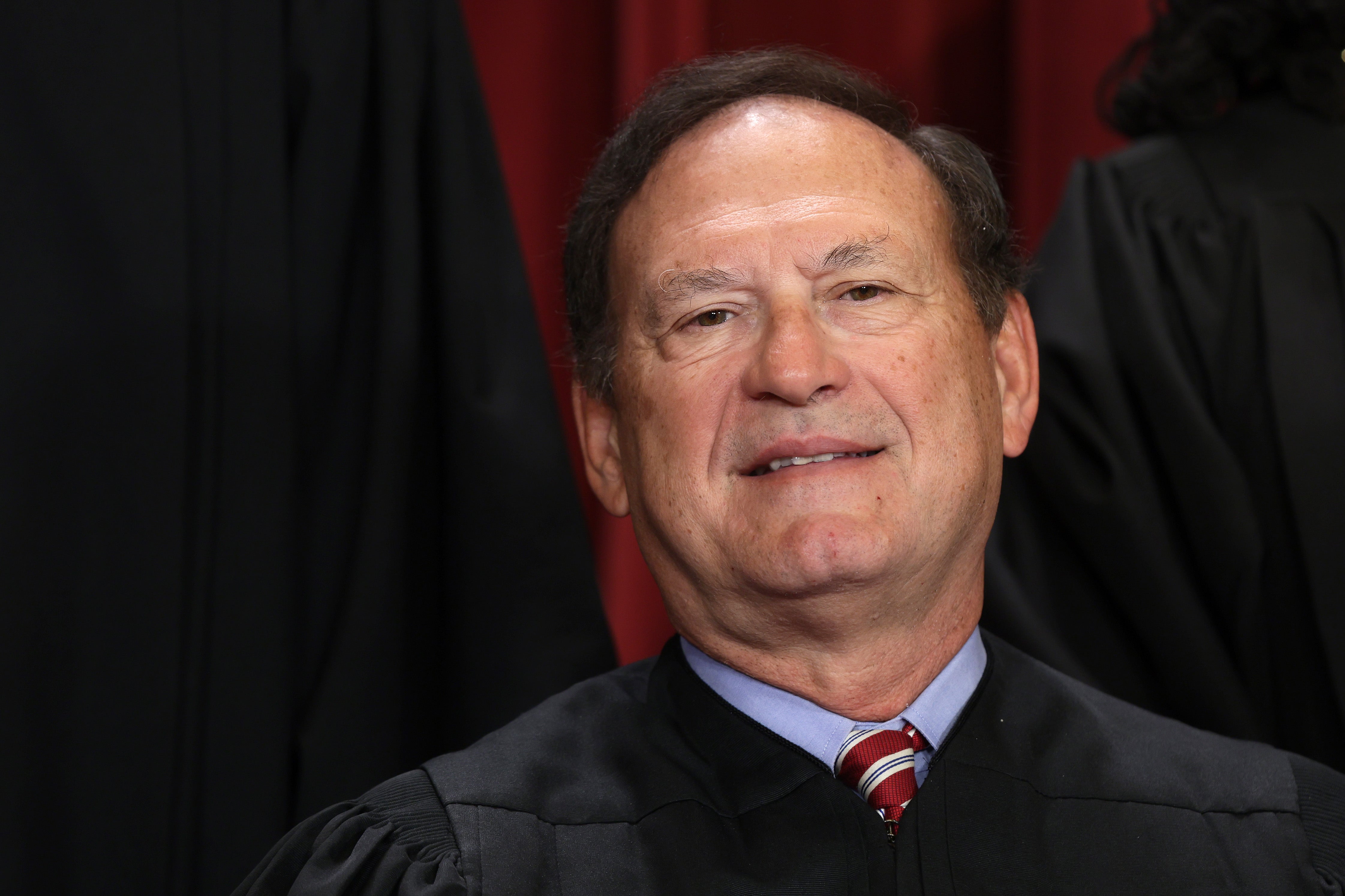Comparing modern-day online pornographic material to “brick-and-mortar” pornographic stories and racy magazines, the Supreme Court justices questioned, on Wednesday, whether an age verification law intended to prevent minors from accessing explicit content in Texas impeded on adults.
“What percentage of the material on [Pornhub] is not obscene?” Justice Samuel Alito asked. “Is it like the old Playboy – you have essays on there by the modern-day equivalent of Gore Vidal and William F. Buckley Jr.?”
Vidal, a novelist, and Buckley, a conservative publisher and journalist, were among the public intellectuals who wrote for the magazine in the 1970s. Alito’s question – which raised a laugh in the courtroom– appeared designed to draw a contrast between an earlier age of “gentleman’s magazines” of the last century and the more explicit content of online pornography.
“Explain to me why the barrier online is different from a brick-and-mortar setting?” Justice Amy Coney Barrett asked inquiring about age verification online versus buying something in person.

Justices invoked outdated examples of accessing pornography in trying to understand the constitutionality of the Texas law – in part because the major precedents they have to go off of are from 1968, 1989 and most recently 2004.
“We’re in an entirely different world,” Justice Clarence Thomas said.
Chief Justice John Roberts observed that access to pornography online has “exploded.”
In the age of the internet, 19 states have passed laws requiring a person to verify their age to access pornographic content including Texas which passed, what some First Amendment defenders believe, is too strict of a law.
The Texas law requires websites that contain more than “one-third” sexual material to verify a user’s age through identification such as government ID – though social media platforms are exempt. Websites that do not comply can face a fine of up to $10,000 per day with enhancements of up to $250,000.
Texas Attorney General Ken Paxton said the law is necessary to protect children from the harms of sexual content.
But the law also requires those websites to issue a health warning declaring that pornography can “harm human brain development” or “weaken brain function” despite the Texas Health and Human Services Commission never declaring such findings.
As a result, websites like Pornhub have stopped operating in Texas.
But Free Speech Coalition, a trade association for the adult entertainment industry, argues the law impedes the First Amendment by restricting adults’ access. A lawyer for the group said on Wednesday that Texas’s law should be subject to “strict scrutiny” – a form of judicial review that is used to determine if the government is infringing on a person’s right or if a rule is “narrowly tailored” enough that it achieve “a compelling interest”.
The lawyer believes requiring government I.D. would put people at risk of data breaches, identify theft and more.
All parties agree that protecting children from pornographic content is necessary – something Justice Barrett highlighted through her own experience parenting children.
“Kids can get online porn through gaming systems, tablets, phones, computers. Let me just say that content filtering for all those different devices, I can say from personal experience, is difficult to keep up with,” Barrett said.
Increasingly, the justices are being asked to weigh in on matters related to the internet such as content moderation on Facebook and foreign data collection on TikTok – matters without a clear precedent to rely on.
Now, they’re being asked to do the same in ruling whether or not the Texas pornographic law went too far. From the sound of oral arguments, justices seemed interested in keeping age verification laws in place to some extent.

